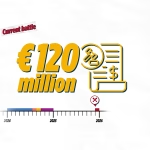Corporate tax on free zone businesses is a crucial topic in the UAE, and the recent release of the free zone persons’ guide by the Federal Tax Authority (FTA) aims to enhance users’ understanding of this subject. The guide covers various aspects such as glossary, introduction, and criteria for becoming a qualifying free zone person (QFZP). It also provides insights into the responsibilities of QFZPs, including registration, financial statement preparation, auditing, tax return submission, and record maintenance.
One of the key points of interest in the guide is the clarification on the beneficial recipient criteria for transactions with other free zone persons to qualify for zero-rated status. Additionally, the guide categorizes revenue into different segments, offering valuable guidance for calculating the de-minimus percentage. Users can benefit from detailed explanations and examples provided in the guide to gain a deeper understanding of the subject.
Calculating corporate tax for QFZPs is addressed in section five of the guide, which emphasizes the segmentation of revenue, appropriate allocation of expenses, and the calculation of taxable income following the general rules outlined in Article 20 of the law. Section six discusses the adequate substance requirements for QFZPs engaged in qualifying activities, particularly in distribution businesses, outlining scenarios where core income-generating activities can be outsourced but require adequate supervision.
The guide also elaborates on domestic and foreign permanent establishments (PE), stating that the income of both types of PE is directly taxed at nine per cent and is not included in the de-minimum calculation. Immovable and commercial property definitions are provided in section eight, highlighting the taxation rules for revenue generated from immovable property and commercial property. The guide also addresses the tax exemption for QFZPs engaged in research and development (R&D) to produce qualifying intellectual property (QIP).
Overall, the free zone persons’ guide by the FTA offers comprehensive information on the application of corporate tax on free zone businesses in the UAE. It provides clear explanations, examples, and instructions to help users navigate through the complexities of the tax system. By following the guidelines outlined in the guide, QFZPs can ensure compliance with the tax regulations and avoid penalties. For further clarification or queries, users can contact Mahar Afzal, the managing partner at Kress Cooper Management Consultants, who provided insights into the topic.









